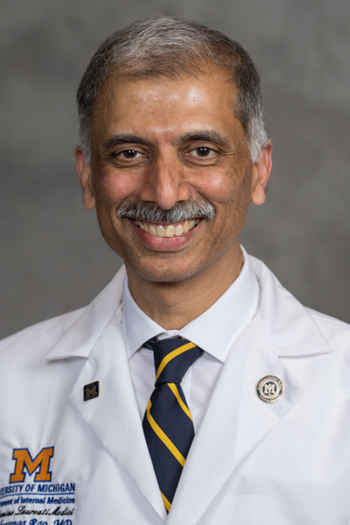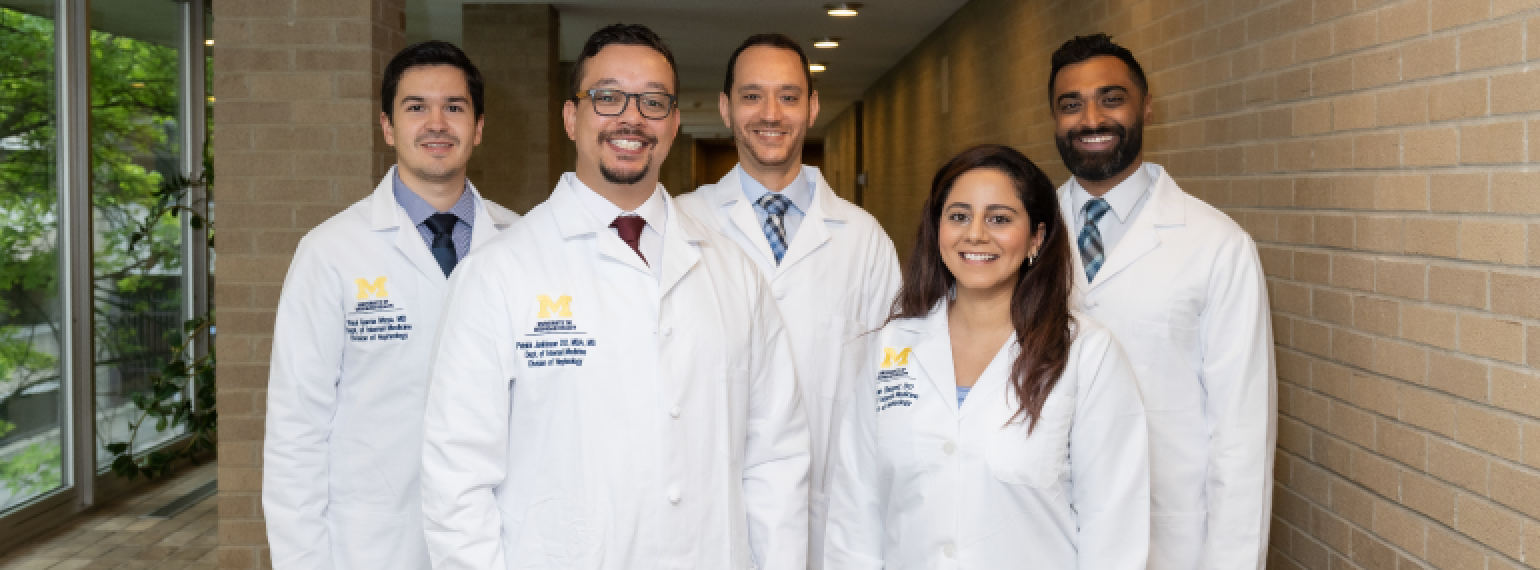
OPEN FELLOWSHIP POSITION
We have an unexpected opening for a first-year fellow position starting on July 1, 2024. The two year fellowship offers outstanding training in all aspects of nephrology including transplantation, glomerular disease, and intervention nephrology. Excellent research opportunities available for interested candidates. To be eligible, applicants must have completed a three-year internal medicine residency at an ACGME-accredited program in the United States.
If you are interested, please contact Panduranga Rao, Program Director, Matt Magers, Program Administrator.
The Nephrology Fellowship Training Program, recognized for excellence in clinical and research training, is led by Panduranga Rao, MD, DNB, MS, who is the Program Director, along with Laura Mariani, MD, who serves as the Associate Program Director.
Five fellows are typically appointed to the fellowship program each year. For all fellows, the first year is primarily focused on clinical training. For fellows intent on an academic career, two or three additional years are largely devoted to mentor-directed research in basic science, outcomes/epidemiology, or clinical research. Support during the second and third year may be provided by a NIH-training grant. For those who desire a career in clinical nephrology, the second year is largely clinical with rotations in hypertension, pediatric nephrology, outpatient dialysis, renal consultation, and interventional nephrology, as well as a number of elective rotations in related disciplines.
Strengths of Our Program
- An unusual balance and depth in both clinical and research training.
- Over forty-five dynamic faculty members whose expertise spans a wide range of clinical and research areas; many are national leaders in their fields and many have a demonstrated track record mentoring fellows.
- Two large hospitals (University of Michigan Health and VA Ann Arbor) that provide complementary and diverse patient populations.
- An outstanding renal transplantation program that transplants more than 200 new allografts per year.
- Large outpatient clinics in general nephrology and subspecialty clinics in transplantation nephrology, chronic hemodialysis, home hemodialysis, peritoneal dialysis, glomerular diseases, and nephrolithiasis.
- A dedicated Interventional Nephrology Unit and training in interventional nephrology, including procedures such as dialysis catheter placement, fistulogram, angioplasty, and renal biopsy.
- Opportunities for research training in fields including cell and molecular biology, biochemistry, immunology, clinical physiology, vascular biology, molecular genetics, developmental biology, biomedical engineering, clinical trials, epidemiology and outcomes research, health services research, and medical education.
Postdoctoral Fellowship
In addition, we have a NIH-supported training grant, “The University of Michigan Kidney, Urology, and Hematology Research Training Network (UM KUHR)”, that was established to provide postdoctoral fellows with the opportunity to pursue training in diverse aspects of kidney research. Training grant mentors fall into major interest groups across the spectrum of KUH research: 1) basic mechanisms and model organism systems, 2) systems biology, bioinformatics, and translational discovery, 3) clinical and epidemiology studies, and 4) health services and implementation science studies.
Additional Training Opportunities
- Pediatric Nephrology - a combined program available to properly qualified trainees
- Interventional Nephrology Fellowship Training Program – advanced training in dialysis vascular access care
- Transplant Nephrology Fellowship Program – specialized training in the outpatient and inpatient setting
Contact Us
For more information about our Nephrology Fellowship Training Program, please contact:
Matthew Magers
GME Program Administrator
Division of Nephrology
Department of Internal Medicine
1500 E. Medical Center Drive
3914 Taubman Center, SPC 5360
Ann Arbor, MI 48109
Phone: 734-764-3269
[email protected]
Salary and Benefits
Learn about salary, benefits, and employment eligibility.
Discover Michigan Medicine and Ann Arbor
View the Go Blue Guide to life at Michigan Medicine.







